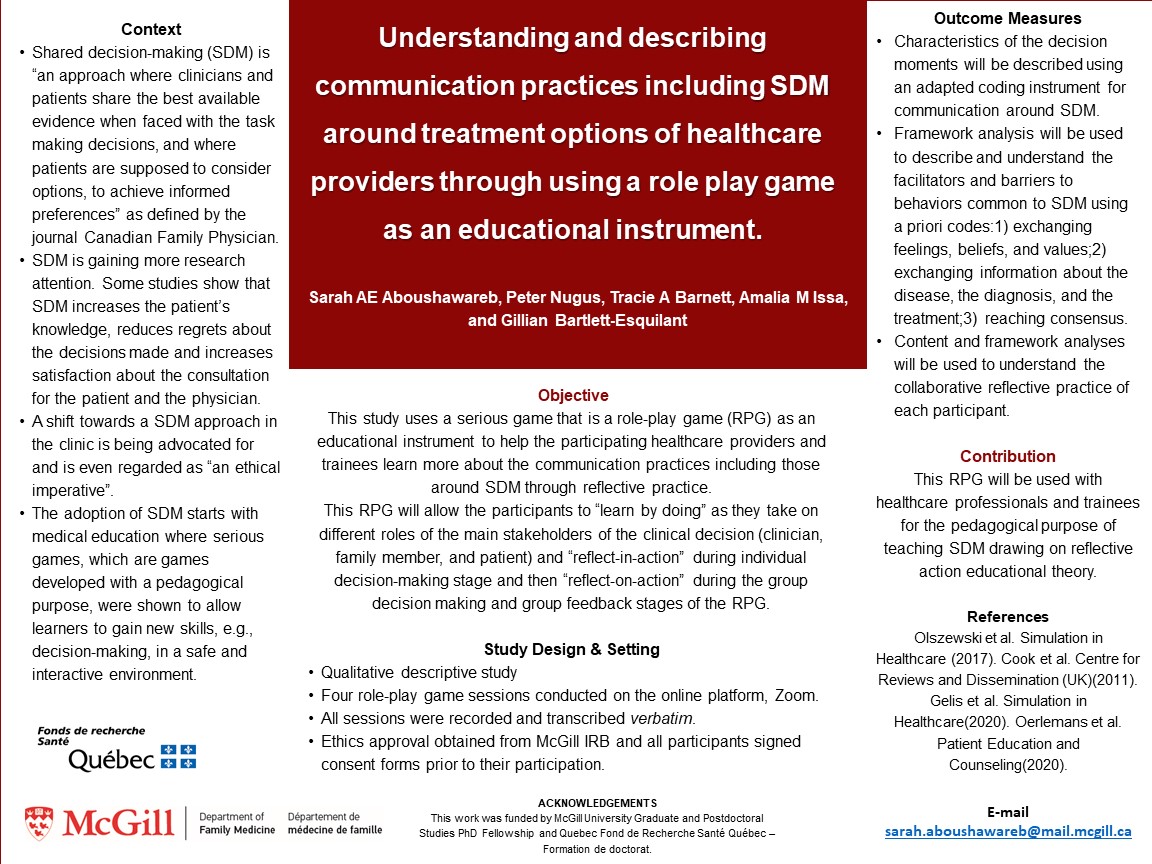SRFP109: Understanding communication practices around treatment options of healthcare providers through using educational role-play
Sarah Aboushawareb, BPharm, MSc, PhD student; Gillian Bartlett-Esquilant, PhD; Peter Nugus, PhD, BA, MA, MEd; Amalia Issa, PhD, MPH; Tracie Barnett, PhD

Jack Westfall
jwestfall@aafp.org 11/21/2021Terrific project. Great poster and abstract. Thanks for sharing at NAPCRG